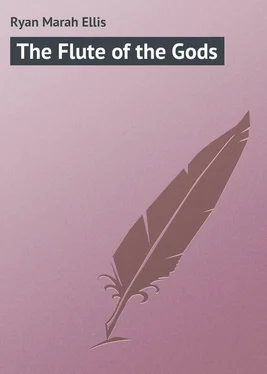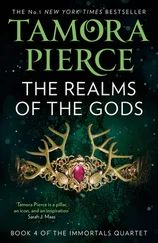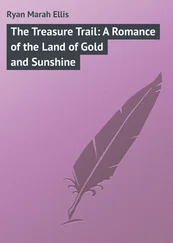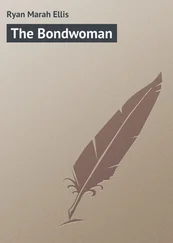Marah Ryan - The Flute of the Gods
Здесь есть возможность читать онлайн «Marah Ryan - The Flute of the Gods» — ознакомительный отрывок электронной книги совершенно бесплатно, а после прочтения отрывка купить полную версию. В некоторых случаях можно слушать аудио, скачать через торрент в формате fb2 и присутствует краткое содержание. Жанр: foreign_prose, на английском языке. Описание произведения, (предисловие) а так же отзывы посетителей доступны на портале библиотеки ЛибКат.
- Название:The Flute of the Gods
- Автор:
- Жанр:
- Год:неизвестен
- ISBN:нет данных
- Рейтинг книги:3 / 5. Голосов: 1
-
Избранное:Добавить в избранное
- Отзывы:
-
Ваша оценка:
- 60
- 1
- 2
- 3
- 4
- 5
The Flute of the Gods: краткое содержание, описание и аннотация
Предлагаем к чтению аннотацию, описание, краткое содержание или предисловие (зависит от того, что написал сам автор книги «The Flute of the Gods»). Если вы не нашли необходимую информацию о книге — напишите в комментариях, мы постараемся отыскать её.
The Flute of the Gods — читать онлайн ознакомительный отрывок
Ниже представлен текст книги, разбитый по страницам. Система сохранения места последней прочитанной страницы, позволяет с удобством читать онлайн бесплатно книгу «The Flute of the Gods», без необходимости каждый раз заново искать на чём Вы остановились. Поставьте закладку, и сможете в любой момент перейти на страницу, на которой закончили чтение.
Интервал:
Закладка:
“It is strong for war:–not for peace,” said the boy.
“Ka-yemo brought back the words of the medicine-man of the grey blanket who talked of their god. All his talk was of peace and of love in the heart. Is that true?”
“It is true. He was a good man. It may be that some men are born so good that even the gods of the men of iron cannot make them evil. And Padre Luis was born into the world like that.”
“We listen to you to hear of the moons and the suns since you went away.”
The boy told of the fruitless search to the east for the wonderful land of the slave’s romance, where the natives used golden bowls instead of earthen vessels for food, where each soldier was so sure of gaining riches that the weight of provisions carried was small lest the animals be not strong enough to carry all the gold and the food also.
The old men laughed much at this search for the symbol of the Sun Father along the waters of the Mischipi, and commended the wise men of Ci-cu-yé who had the foresight to plan the romance, and to send the slave to lead the adventurers to the land of false dreams.
It was bad, however, that the strangers had not lost themselves in the prairies, or were not killed by the fierce tribes of the north:–it was bad that they came back to the villages of the P[=o] – s[=o]n-gé river.
Then the boy told of the final despair of the conquerors, and their disheartened retreat to the land of the south. For two years they had terrorized the people of the land–worse enemies than the Navahu or the Comanche or the Apache fighter, then when they had made ruins where towns and gardens had been, they said it was all of no use since the yellow metal was not found in the ground.
“Did the wise men of iron not know that where the yellow metal is in the earth, that there is ever the symbol of the Sun Father, and that it must be a thing sacred and a hidden place for prayer?”
“They did not know that:–no man told them.”
K[=a] – ye-fah, the ancient Ruler blew smoke from his pipe to the four ways, and spoke.
“Yet among the men they burned to ashes in the village square were many who could have told them that, and three who could have told them where such prayer places were hidden! It is well, my children, that they did die, and not tell that which the Sun Father has hidden for his own people:–it is well!”
“It is well!” echoed the others of the council.
“We all die when the day or the night comes,”–continued the old man. “It is well that we die in bravery for the sake of the others who have to live and walk the earth path. It is well that we have strong hearts to think about. One day I shall go in the ground with my fathers; I am old, and the trail has been long, and in my old days the sunlight has been covered for me.”
Tahn-té did not know what he meant, but the other men bent their heads in sympathy.
“It is twice four moons since my child K[=a] – ye-povi was carried away in the darkness when we fought the Navahu in the hunting grounds to the west,”–he continued. “No one has found her–no trader has brought her back. When a woman, she will not know her own people, or our own speech. I think of that, and grow weak. Our people have never been slaves–yet she will be a slave for our enemy the Navahu! So it is that I grow old more quick, and the time may come soon to sleep on our Mother–the Earth.”
“We wish that it comes not soon,” said the governor, and the others signified their assent.
“Thanks, thanks that you wish it. I do not speak of it to give sad hearts. I speak because of the days when I may be gone, and another than me will hold the knowledge of a sacred place where the Sun Father hides his symbol. It is good that I hear of the men who let themselves go into ashes, and when if they had said once:–‘I know where it is–the metal of the Sun!’ all might have gone free and lived long days. My children:–it may be that some day one of you will hold a secret of the sacred place where strong magic lives! If it be so, let that man among you think in his heart of the twenty times ten men who let themselves be burned into ashes by the white men of iron! Guard you the sacred places–and let your ashes go into the sands, or be blown by the winds to the four ways. But from the sacred things of the gods, lift not the cover for the enemy!”
The old man trembled with the intensity of the thought and the dread of what the unborn years might bring.
After a moment of silence the governor spoke:
“It may be that you live the longest of all! No one knows who will guard the things not to be told. But no Te-hua can uncover that which belongs to the Sun Father, and the Earth Mother.”
“It is true:–thanks that it is true!”–said the other men, and Tahn-té knew he was listening to things not told to boys.
“Thanks that you speak so,” said the Ruler. “Now we have all spoken of this matter. It is done. But the magic of the white hunters of gold, we have not yet heard spoken. How is it, boy, that you have brought all these signs of it:–what made blind their eyes?”
“Not anything,” said Tahn-té. “It was a long time I was with them. Some men had one book, or two, other men had papers that came in great canoes from their land in Spain. Some had writings from their fathers or their friends. These I heard read and talked of around the camp fire. When they went away some things were thrown aside or given to the padres who were to stay and talk of their gods. All I found I hid in the earth. The people of Ci-bo-la killed Padre Juan, and I traded a broken sword for his books and his papers. The sword I also had buried. They were afraid of the books, I had learned to read them, and I was not afraid.”
“And you came from Ci-bo-la alone?” asked the governor,–“it is a long trail to carry a load.”
“All was not carried from there. I came back to Ci-cu-yé to learn more from Padre Luis who meant to live there. He did not live so long, but while he lived he taught me.”
“The men of Ci-cu-yé killed him too?”
“They made him die when they said I must not take beans or meal to him where he lived in a cave, and where he made prayers for their shadow spirits.”
“You wanted that he should have food?” asked the Ruler.
“I wanted that he should live to teach me all the books before the end came,” said the boy simply. “It is not all to be learned in two winters and one summer.”
“That is true,” said K[=a] – ya-fah the Ruler. “All of a man’s life is needed to learn certain things of magic. It is time now that you come back and begin the work of the Orders. You have earned the highest right a boy has yet earned, and no doors will be closed for you on the sacred things given to people.”
“We think that is so,” said the governor–“no doors will be closed for the son of S[=aa] – hanh-que-ah, the Woman of the Twilight.”
This was the hour he had dreamed of through the months which had seemed horrible as the white man’s hell. One needs only to read the several accounts of Coronado’s quest for the golden land of the Gran Quivera in 1540-42 to picture what the life of a little native page must have been with the dissatisfied adventurers, by whom all “Indians” were considered as slaves should their service be required.
Men had died beside him on the trail–and there had been times when he felt he too would die but for the thought of this hour when he could come back, and the council could say–“It is well!”
“I thank you, and my mother will thank you,” he said with his eyes on the stones of the kiva lest the men see that his eyes were wet. “My mother said prayers with me always, and that helped me to come back.”
“The prayers of the Shadow Woman are high medicine,” assented one of the men. “She brought back my son to live when the breath was gone away.”
Читать дальшеИнтервал:
Закладка:
Похожие книги на «The Flute of the Gods»
Представляем Вашему вниманию похожие книги на «The Flute of the Gods» списком для выбора. Мы отобрали схожую по названию и смыслу литературу в надежде предоставить читателям больше вариантов отыскать новые, интересные, ещё непрочитанные произведения.
Обсуждение, отзывы о книге «The Flute of the Gods» и просто собственные мнения читателей. Оставьте ваши комментарии, напишите, что Вы думаете о произведении, его смысле или главных героях. Укажите что конкретно понравилось, а что нет, и почему Вы так считаете.












